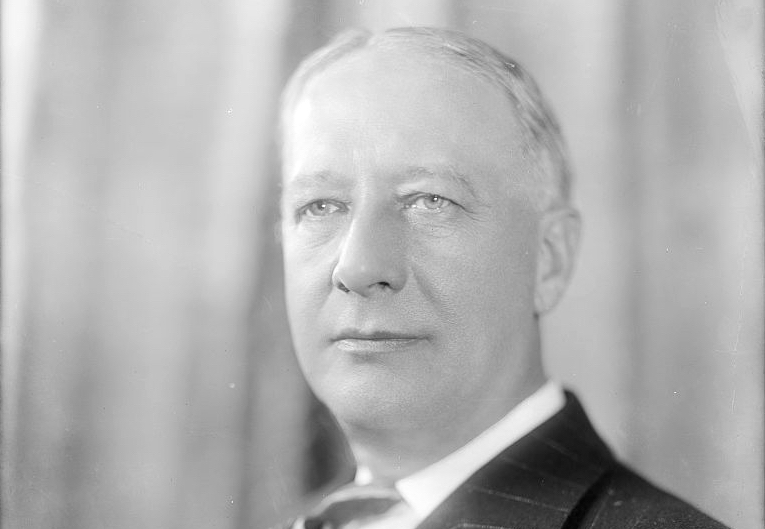There has been a great deal of talk about why Majority Leader Eric Cantor of Virginia was defeated in a primary since he had little support from his own Republican Party. There is even speculation that his different viewpoints on immigration and perhaps his Jewish heritage became a thorn in the side for some conservatives, especially Tea Party members.
Eric Cantor, who just a few years ago was an untouchable star being groomed for the Speaker of the House position, could learn a lesson from a politician living during the early twentieth century— New York State Governor Alfred E. Smith.
In his noteworthy career as a public servant he too contended with insurgent party members about his unpopular stance toward various social issues as well as his religious background. Alfred (known as Al) E. Smith was a Democrat and regardless of the backlash by his opponents he continued to move forward, being elected four times as Governor of New York State.
Al’s political career can be characterized by true grit, guile and tenacity. He passed legislation that made him a household name in New York State and across the nation. In 1928 Alfred E. Smith was nominated by the Democratic Party to run for President against Herbert Hoover. That year the Presidential election was marked by bigotry and intolerance spewed by many Southern Democrats from Al’s political party. Many Southern Democrats from White Anglo Saxon Protestant backgrounds could not fathom a Roman Catholic in the Executive office.
During the 1928 Presidential campaign, the Republican Party certainly took their jabs at Al Smith but internal conflict from the Governor’s own party caused friction and disillusioned many as well, making Al lose the election that year. Similar to Cantor’s Jewish heritage that allegedly was a sensitive spot for some Republicans, in the 1920s Southern Democrats were firmly convinced that if Al Smith was elected President he would turn the country over to the Papacy. Furthermore, many did not like Alfred E. Smith’s position against the Prohibition amendment, and his support for helping immigrants and women, were equally not favored by his constituency.
Surprisingly a little known fact about Alfred E. Smith’s was that his paternal grandfather was from Northern Italy. The family’s surname was Ferraro and his father’s name was Alfred Emanuele Ferraro. The Governor’s father was a laborer, who decided to change the family surname to sound more Anglo. During the antebellum years, he settled in the Fourth Ward (a section within the Lower East Side) an ethnically mixed community until circa 1880s when many Italian immigrants arrived.
In order to support his family financially when his father died prematurely, young Al Smith was forced to drop out of school after completing the seventh grade. Al first worked as a news boy in Newspaper Row; and then as an adolescent at the Fulton Fish Market, making 15.00 dollars a week, which was a decent wage for that era. He learned some Italian while working at Fulton Fish Market.
Years later with the support of Tammany Hall (a NYC Democratic political organization) Al Smith became a New York State Assemblyman before being elected Governor. Many Italian laborers from his neighborhood believed Al understood them and their hardships. There was a mutual admiration shared between Italian immigrants and Al Smith.
When Al Smith worked for the State Assembly, he passed a bill that recognized and celebrated a special day for Christopher Columbus. Moreover, in Robert A. Slayton’s book Empire Statesman: The Rise and Redemption of Al Smith, the author declares that during his election for NYS Governor (1918) “In New York City, Italians supported him by figures as high as 79 percent….” The author went on to say, in his last term as Governor “His last official act fittingly enough, was to commute the sentence of an Italian immigrant…”
Governor Alfred E. Smith’s humble beginnings as a young boy living in a poor urban neighborhood in New York City led many Italian immigrants to appreciate his candid style and his ability to get the job done. At the same time, many WASPs controlled most of the power in the US and treated the New Immigrant arrivals (Irish and South Eastern Europeans) very harshly; Italian immigrants were no exception and became targets of nativists.
Immigration and women rights were constantly being debated in the US during the early 20th century, but Governor Alfred E. Smith was one of the first politicians to counter the nativists’ strong objection to these two highly charged topics. A nativist was someone born in America whose origins were most likely WASP and their political affiliation, for some, was the Know Nothing Party. In today’s terms a nativist is similar to a Tea Party member, although not all members have WASP backgrounds.
For Al Smith the tide changed however, when he decided to throw his brown derby hat (the bowler hat became the Governor’s symbol) into the national political scene. Many White Southern Democrats did not support Al in the 1924 Democratic nomination for President and were not happy about supporting him in the ’28 election. Despite the Governor’s partial Italian background, most were unaware of this information and being Roman Catholic as well as partially Italian would have hindered him even more.
Unlike many political flip floppers today, Alfred E. Smith epitomized a time when political leaders were not afraid to express their political ideology regardless of how unpopular it was perceived by the masses, even if this included his own party. Ultimately, his political record was defined by passing legislation that supported the immigrant population and women advance through America’s social pyramid. He was determined to be resistant to the opposition if he firmly believed in something, a lesson more politicians today should embrace. His strong leadership skills led President Franklin D. Roosevelt to bestow Smith the moniker Happy Warrior.
Throughout his life, Al Smith was truly a warrior for immigrants and continued to fight against religious intolerance. He believed American leaders in government should represent the diverse cultures in the US, and they must be allowed to disagree and voice their opinions no matter how unpopular, for a healthy democracy to grow and serve the people.






























